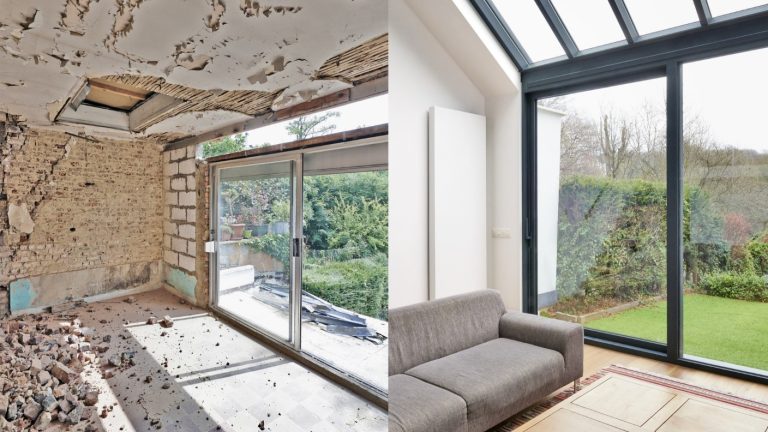Home inspections play a pivotal role in property transactions, providing buyers with a thorough understanding of the condition of a home before finalizing the purchase. Beyond just identifying potential issues, inspections influence negotiations, pricing, and the overall success of the transaction. In this deep dive, we’ll explore the significance of home inspections, their impact on buyers and sellers, and the long-term implications for the property involved.
Understanding the Purpose of Home Inspections:
Risk Mitigation:
- Home inspections serve as a crucial risk mitigation strategy for both buyers and sellers. For buyers, it provides insights into the property’s condition, helping them make informed decisions and avoid unexpected expenses. Sellers, on the other hand, gain an opportunity to address issues proactively, potentially increasing the property’s marketability.
Negotiation Tool:
- The findings of a home inspection often become a pivotal point in negotiations. If significant issues are discovered, buyers may use them to negotiate a lower sale price, request repairs, or seek seller concessions. Sellers, armed with inspection reports, can address concerns upfront or adjust the selling price accordingly.
Informed Decision-Making:
- Buyers rely on home inspections to make informed decisions about one of the most significant investments in their lives. By understanding the property’s condition, they can assess whether it aligns with their expectations, budget, and willingness to undertake potential repairs or renovations.
Seller Disclosure and Transparency:
- Sellers are typically required to disclose known issues with the property, but a home inspection provides an additional layer of transparency. It offers an unbiased assessment, ensuring that buyers have a comprehensive understanding of the property’s strengths and weaknesses.
Impact on Buyers:
Peace of Mind:
- A satisfactory home inspection provides buyers with peace of mind, knowing that they are making an informed decision. It helps them envision the cost and effort required for potential repairs and upgrades, ensuring that the property aligns with their expectations.
Negotiation Leverage:
- Armed with a comprehensive inspection report, buyers gain negotiation leverage. They can use the findings to request repairs, a reduction in the sale price, or credits to cover anticipated expenses. This leverage can be instrumental in achieving a fair deal and avoiding unexpected costs post-purchase.
Decision to Walk Away:
- In some cases, a home inspection may reveal issues that are beyond the buyer’s comfort level or budget. The findings empower buyers to make a critical decision: proceed with the purchase, negotiate for necessary repairs, or, in extreme cases, walk away from the transaction.
Impact on Sellers:
Preemptive Repairs:
- Sellers can use home inspection reports to address potential issues before listing the property. Conducting preemptive repairs not only improves the property’s appeal but also reduces the likelihood of negotiations falling through due to unexpected problems.
Setting Realistic Expectations:
- Home inspections help sellers set realistic expectations about the property’s value. By being aware of potential issues, sellers can price their homes accurately, avoiding overpricing that may lead to extended market times and reduced buyer interest.
Marketing Advantage:
- A pre-listing home inspection can be used as a marketing advantage. Sellers can present the inspection report to potential buyers, demonstrating transparency and a commitment to ensuring a smooth transaction. This transparency can build trust and attract serious, informed buyers.
Long-Term Implications:
Property Value Preservation:
- Addressing issues identified in a home inspection contributes to the long-term preservation of a property’s value. Regular maintenance and proactive repairs based on inspection findings help prevent minor problems from evolving into major, costly issues.
Positive Seller Reputation:
- Sellers who are transparent and responsive to inspection findings build a positive reputation within the real estate market. This can lead to smoother transactions, positive word-of-mouth referrals, and increased buyer confidence in future property listings.
Buyer Satisfaction:
- A thorough home inspection ensures that buyers are fully aware of the property’s condition at the time of purchase. This transparency contributes to buyer satisfaction, reducing the likelihood of disputes or regrets post-closing.
Conclusion:
In the intricate dance of property transactions, home inspections are a crucial choreography. They provide a meticulous examination of a property’s condition, impacting negotiations, buyer decisions, and seller strategies. The long-term implications extend beyond the closing table, influencing property value, market reputation, and overall satisfaction. As the real estate market continues to evolve, the importance of home inspections remains a constant, ensuring that the dance of property transactions is not just well-executed but also built on a solid foundation of transparency and informed decision-making.











